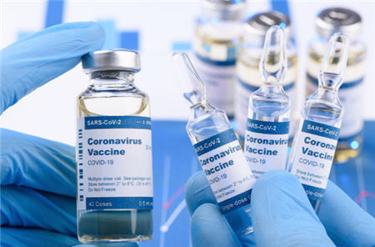Should Drinking Water And Wastewater Utility Employees Receive COVID-19 Vaccine Priority?


As limited doses of approved COVID-19 vaccines are distributed around the country, vulnerable populations and frontline workers have been given priority to receive them. And in certain pockets of the U.S., drinking water and wastewater employees have made the case that they should be included in the priority grouping.
“The water districts and sewer districts are the first line of defense for health,” Scott Abbattoni, a water director in Maine who is advocating for his fellow employees to be put on a higher vaccine priority list, told News Center Maine. “You don’t hear of people getting cholera or dysentery, because that stuff is taken care of. But what happens if people are out?”
Maine’s water and wastewater districts have seen their workers bumped from a “1B” priority for vaccines to a “1C” priority in order to accommodate state residents who are age 70, first. But even while describing the decision to prioritize older residents over drinking water and wastewater workers, a state official acknowledged that these workers are very much on the frontlines.
“Make no mistake, the work water system employees and municipal sewer treatment plant employees undertake is critical,” Dr. Shah of the Maine CDC said, per News Center Maine. “We wouldn’t have fresh water without them.”
And these aren’t the only sector employees seeking higher vaccine priority around the country. In Iowa, for instance, there has been a similar call.
“Dubuque city leaders are rallying behind the state’s leading drinking water and wastewater industries to ask Governor Kim Reynolds and the Iowa Department of Public Health to include these employees in Group 1B of the COVID-19 vaccinations,” according to KCRG. “In a letter sent to state leaders, organizations like the Iowa Rural Water Association and the Iowa Association of Water Agencies said ‘drinking water and wastewater utilities are essential to the public health and economic vitality of the communities they serve.’”
Dubuque’s 1B group is set to include people 75 and older, law enforcement and emergency personnel, teachers and school staff, childcare providers, and adults with underlying health conditions. Drinking water and wastewater employees were not included. But if a significant portion of these employees were to catch COVID-19, the consequences for the entire city could be severe.
“We have limited resources, we have limited staff and so, should we have a large number of our staff become affected with COVID and have to be off for a while, we would really need to start calling in employees from other utilities who could be struggling with the same things we are dealing with,” William O’Brien, Dubuque’s Water and Resource Recovery Center manager, explained to KCRG.
Though some drinking water and wastewater groups have felt the need to fight for their employees’ places on COVID-19 vaccine priority lists, nobody could credibly argue that they aren’t essential workers deserving of consideration. Balancing that fact with the needs of other groups will become the challenge.
To read more about the individuals who staff drinking water and wastewater utilities, visit Water Online’s Labor Solutions Center.
